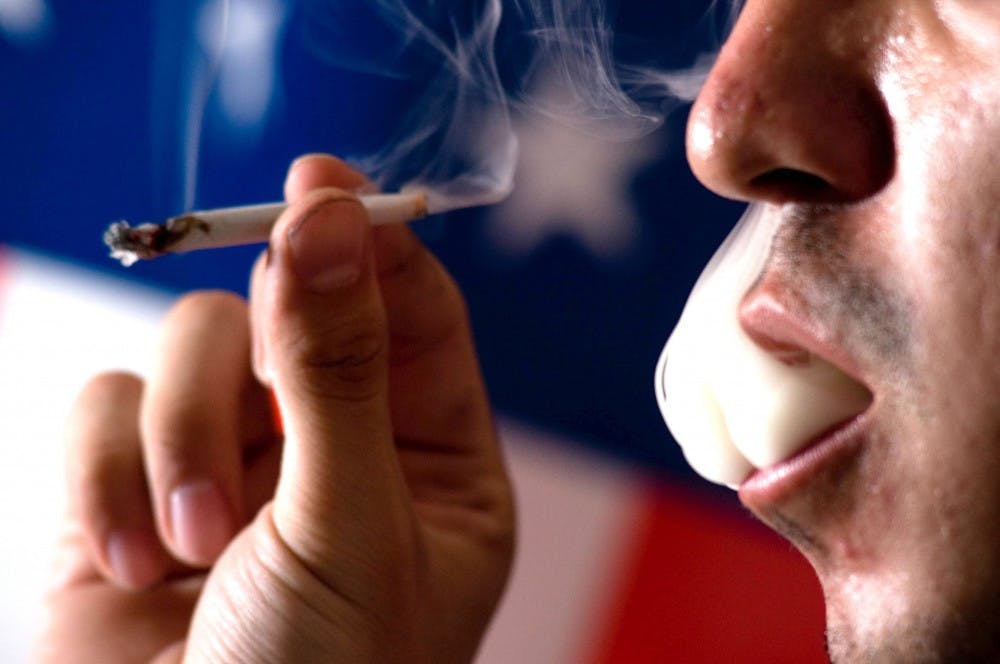A Republican state legislator who openly admits to smoking cannabis in the past is backing a measure that would reduce the penalty for possessing less than two ounces of marijuana.
Rep. John Fillmore, R-Apache Junction, introduced House Bill 2228 in January.
Current Arizona law states that possession of any amount of marijuana is a felony and is punishable by one and a half years in prison and up to $150,000 in fines.
But Fillmore’s measure would make possession of less than two ounces a petty offense and would only be punishable by a fine of no more than $100.
Although Fillmore does not believe the bill will be voted on this session, he plans to work harder next year to get the speaker of the House to give the bill a hearing.
Fillmore decided to endorse the bill because it was the right thing to do, he said. He calls himself a very conservative Republican and said he makes no qualms about his past.
“In the 1960s, I inhaled,” Fillmore said.
In his opinion marijuana is not very different from alcohol.
He doesn’t want to decriminalize marijuana, just “de-felonize” it.
De-felonizing marijuana would reduce the penalty for possession, while decriminalizing marijuana would impose no penalty for possessing or using marijuana.
Fillmore said that he felt legalization of marijuana would be better, but his fellow politicians would never allow it.
Andrew Myers, former campaign manager for Proposition 203, said the proposed bill is symbolically significant.
Proposition 203 was an initiative passed by voters last November that allows patients with certain illnesses to be prescribed medical marijuana.
Myers, who does not endorse the recreational use of marijuana or Fillmore’s bill, said Arizona is typically very conservative and it’s not likely that the bill will pass. But he believes legalizing marijuana with government oversight would be preferable to decriminalization.
“Legalization is a better alternative to [lowering penalties for marijuana possession], because if this bill were to go into effect, marijuana would still be illegal, causing recreational users to turn to the illegal market for purchase, which in turn puts funds into the hands of Mexican cartels,” Myers said.
Brandon Crockett, a history senior, agreed with Myers.
“Drug dealers are connected to cartels and [the legalization of marijuana] would eliminate the illegal activities associated with marijuana, such as drug violence and corruption,” Crockett said.
Crockett said he feels the government can also benefit from the legalization of marijuana.
“From an economic standpoint, if I buy [marijuana] from a store then the state is going to get tax money from that purchase,” Crockett said.
Crockett admitted that even if there are better alternatives, the proposed bill is at least a step in the right direction.
Reach the reporter at brian.bernadel@asu.edu





